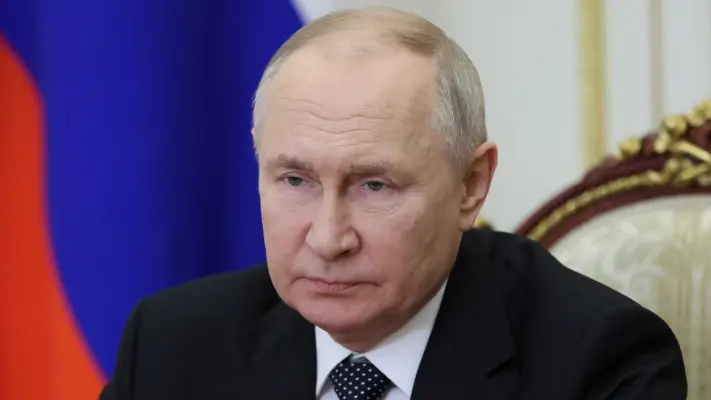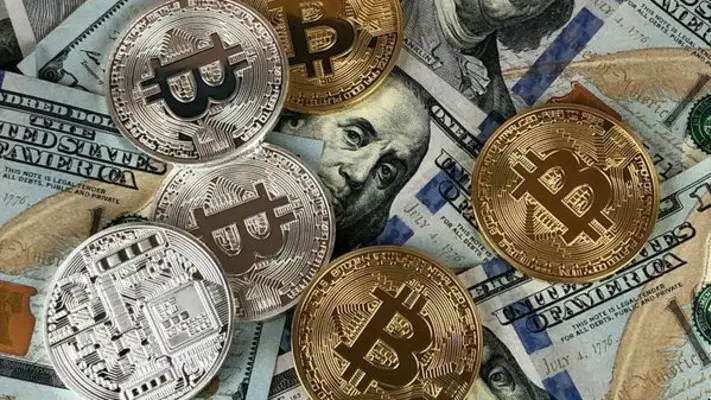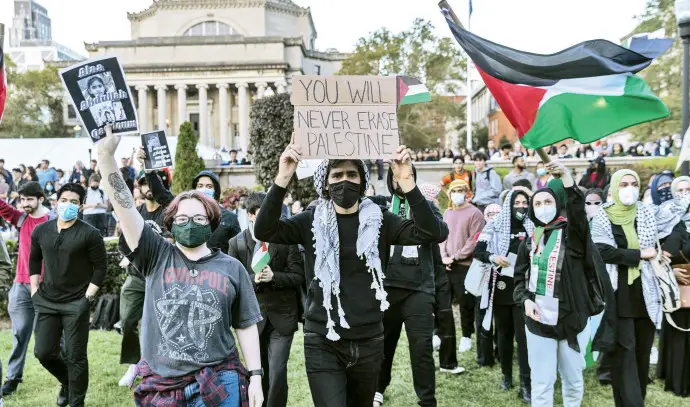The Iranian attack on Israel and the violation of its sovereignty is a serious geopolitical earthquake that has put it, as well as the Middle East and the international arena, into a tremendous upheaval. Beyond the deep enmity, the ideological rivalry and the growing security tensions between Israel and Iran since the Islamic revolution in 1979 that put an end to their relations, and in addition to Israel's counterattack early Friday morning, a military facility from which the strikes were launched at it (a facility located near Isfahan, the third largest city located about 340 km south of Tehran).
"The incident is being investigated": a UAV was hit by a surface-to-air missile in the sky of Lebanon
Israel hit Iran in a sensitive spot – the next stage will be much worse
President Joe Biden announced this past weekend that "Iran has carried out one of the largest missile and UAV attacks against Israel that the world has ever seen." In an overall systemic view, without a doubt, this is a fundamental shift of tectonic plates, a blatant crossing of all "lines" The Reds" and a drastic change of the "rules of the game" and the balance of power in the Middle East. Moreover, launching heavy barrages of about 320 ballistic missiles and cruise missiles, as suicide drones and deadly Iranian drones, is a very serious extreme event that amounts to a declaration of war.
A critical leadership test
Indeed, against the background of the escalation of the conflict in Gaza and the Red Sea crisis and in view of the intensification of the Iranian security threat at the same time as the intensification of the ongoing struggle between the United States, and Russia and China – who support Iran and together lead the "axis of resistance" – the voices describing the attack as a "watershed" are increasing. That is, as a generative event on a global scale that sharpens the polarization between the "good" and "bad" camps and highlights the pursuit of the "axis of evil" countries with an emphasis on Russia and Iran alongside its "proxies" including the terrorist organizations led by Hezbollah and the Revolutionary Guards, Hamas and the Shiite militias in Yemen, Iraq and Syria, to mortally harm Israel – a close ally of the USA – and set the entire Middle East on fire.
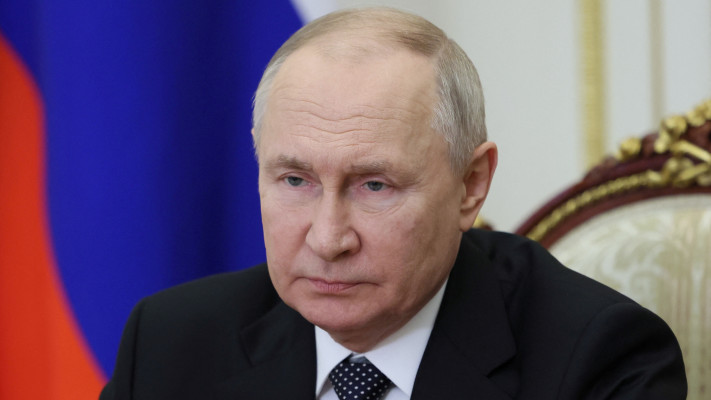
All this, with the aim of influencing the status quo and the global political, security and economic order, to weaken the global American hegemony and to win a global leadership position. From a broad strategic point of view, this is without a doubt one of the most complex and difficult moments of crisis and leadership tests faced by the political, military and security elite in Israel and the US, both together and separately. A critical leadership test whose geopolitical and geoeconomic consequences are enormous especially in light of the security deterioration and the increasing likelihood of conflict regional, which will forever affect the fate of Israel and the countries of the region and will affect trade, the economy and global politics.
Russian alignment with Iran
Not for nothing, against this background, Russia and the head of the Kremlin rushed to take a clear pro-Iranian line and call on all parties to exercise restraint while avoiding a reaction that would lead to a conflict "with catastrophic consequences for the entire region". Along with fully supporting the Iranian regime and justifying the attack against Israel mainly in light of its "terrorist action" in Damascus, the spokesman of the Russian Foreign Ministry even emphasized Iran's legitimate right to self-defense according to Article 51 of the UN Charter.
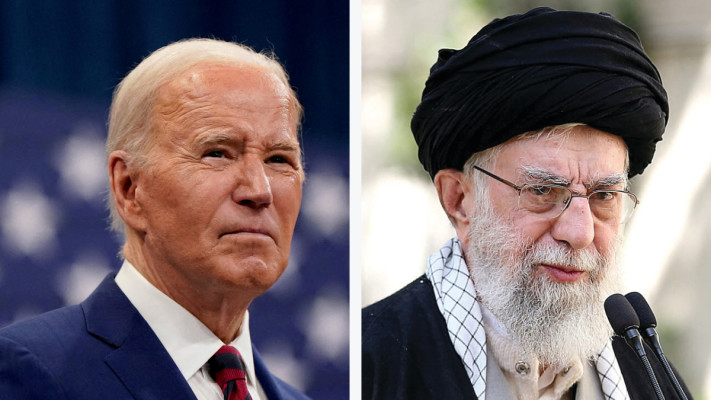
Also, while sharply criticizing the failure of the US's moves in the Middle East, Putin claimed that "the Israeli-Palestinian conflict is the source of regional tensions" and that Iran, for him, is "one of the main pillars of regional security and stability". In addition to blaming Israel "Disregarding the decisions of the UN Security Council and carrying out provocative actions, fraught with risks and serious consequences for the future of the entire region", stressed Russia's permanent representative there, that Tehran is not interested in a security escalation.
Strategic cost-benefit
From a broad geopolitical and strategic point of view, it appears that despite being a global energy and nuclear power and beyond the inherent advantages of diverting international attention and Western resources from its struggle in Ukraine, the Moscow government is expected to suffer heavy losses from the escalation of the conflict in the Middle East and its expansion into a regional war.
Not only that, the prolonged struggle with the Kiev government led to the worsening of international sanctions against it, its international isolation and serious damage to the Russian economy (GDP of 1.86 trillion dollars in 2023). Russia's capabilities today are limited and do not allow it to act as a stabilizing force in the post-Soviet space (for example Azerbaijan's annexation of the ethnic Armenian enclave of Nagorno-Karabakh province) not to mention limiting its ability to be an "arrowhead"/"crushing force" in the Middle East.
Increasing Russian dependence
Furthermore, the tightening of the strategic partnership between Moscow and Tehran is an indication that its influence in this region remains strong. However, it may also signal an increase in its military and energy dependence on Iran (the volume of Russian imports from Iran increased by 15.8% and will reach $1.29 billion, while the volume of exports to it fell by 27.1% and reached $2.7 billion in 2023, according to Russian sources) and this, despite the renewal and worsening of the international sanctions that will soon be imposed on Tehran and in view of the increase in illegal trade between them and the growing fear of a frontal confrontation with Israel.
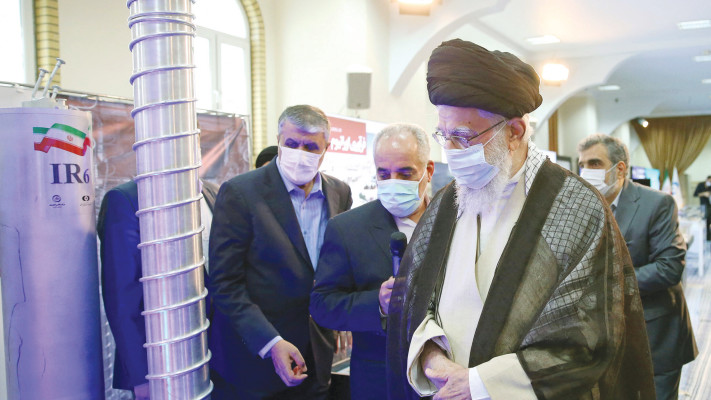
A conflict that could degenerate into a war that would harm the supply of Iranian weapons to it, including thousands of ballistic missiles and the most advanced drones in the world (the scope of military trade between them has increased from 1 billion to about 5 billion since the beginning of 2022) and would also result in the loss of assets and Russian security, economic and energy interests in the Middle East. Such as , weapons systems and military facilities in Syria, nuclear facilities established in Egypt alongside strategic ties with Saudi Arabia and the oil producers in the Persian Gulf.
Moreover, at the top of the Kremlin, there is growing concern about a significant expansion of American involvement in the region, about the tightening of Israel's relations with the moderate Arab countries, led by Egypt and Jordan, and above all, about the normalization of its relations with Saudi Arabia and the strengthening of the anti-Iranian defense alliance. In her eyes, all of these constitute a "red sheet" and a strategic barrier in the framework of her and China's rivalry/competition with the US for achieving dominance in the Middle East.
Chinese support in Tehran
Against this background and in view of the fragility of Beijing's relations with Israel and its close ties with Iran (a strategic alliance from 2021 for 25 years that includes Chinese investments amounting to 400 million dollars there), China's position arouses great interest alongside quite a few question marks. Not only because she condemned the Israeli attack on Damascus at the beginning of the month and even claimed that it was a deliberate Israeli move designed to increase the US's weakening support for it.
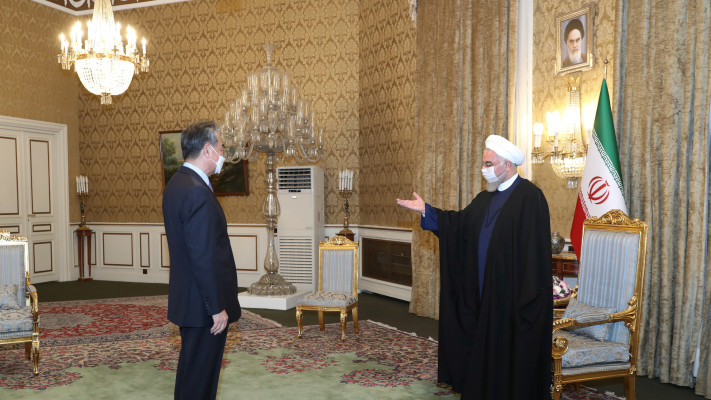
Sources in China described the Iranian attack against it both as a response to its attack in Damascus and, as an essentially "limited" defensive action, because it did not cause significant killing or destruction in Israel. Also, alongside expressing full support for Iran and expressing deep concern about the current situation, China called for a restrained response from all parties involved in the conflict "and especially for all those influential countries that will play a constructive part in restoring peace and stability to the region". The spokesperson of the Chinese Foreign Ministry even emphasized that the escalation of the fight in Gaza increases the Israeli-Iranian tensions that radiate to the regional one, and therefore, it is necessary to return to diplomatic ways to achieve an immediate ceasefire.
Global shipping position
At this point it is important to clarify that for China, for whom maintaining stability and non-intervention in international conflicts are fundamental lines of its foreign policy, this is a critical opportunity to achieve a global leadership position. Not only that, the Israeli-Iranian conflict sharpens the polarization between the blocs, which it strives to exploit to its advantage and influence it without actively intervening in it. Beyond the distraction from its technological-commercial conflict with the US and the tensions between them regarding its activity in the South and East China Seas, including a crisis
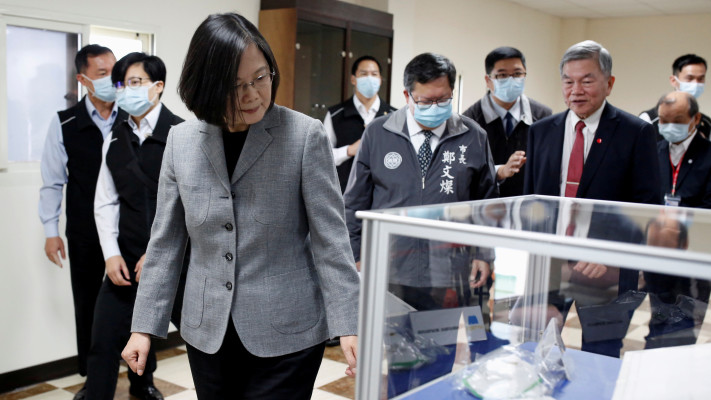
, China derives benefit from the USA's function as a "regional policeman" in the Middle East, especially during this difficult emergency to prevent escalation, limit the Israeli response and achieve a ceasefire.
All this, despite blaming the administration for fueling the existing tensions. In its long-term geo-strategic view, the Beijing government is not interested in security chaos that could harm its strategic, economic and energy interests. These include maintaining international shipping and trade routes as well as the global supply chains that pass through the Red Sea, the Suez Canal and the Straits of Hormuz, among others; Protection of energy sources (with an emphasis on oil and natural gas) and investment in infrastructure and extensive technological systems, among other things, as part of the "Belt and Road" (BRI) project.
It also wishes to preserve and strengthen its diplomatic, commercial and military ties and relations with the countries of the Middle East, many of which, led by Israel, Saudi Arabia and the United Arab Emirates, see Iran as a real existential security threat. In light of all this, she certainly has no interest in setting the Middle East on fire, similar to the ambition of Russia and Iran.
The largest energy consumer in the world
Moreover, Beijing, which does not wish to belong to a certain bloc, is careful to distinguish itself from them and to take advantage of its ties with them to purchase huge quantities of oil and natural gas from both of them, and more at a reduced price, and also, in order to provide both of them with essential technological components for the missile and drone industry and the defense systems against them (Iran is China's 38th trading partner and the total volume of trade between them grew from 944 million in 1992 to about 32 billion dollars in 2023).
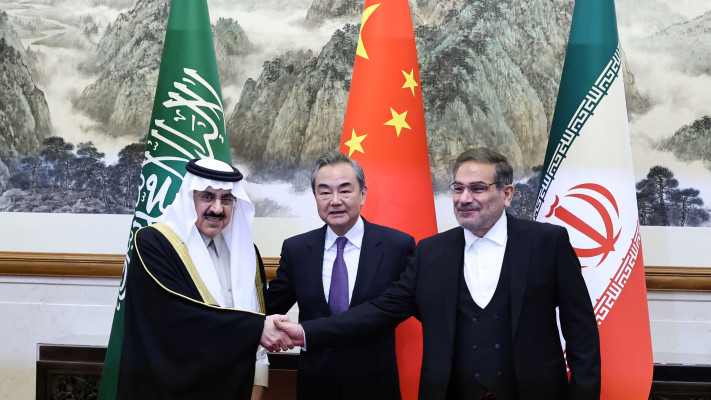
All of this being an alternative strategic target market for each of them that helps circumvent the international sanctions imposed on them (among other things through indirect trade with Malaysia and the United Arab Emirates) and also, while positioning itself as superior and a leader over each of them both on the bilateral level and in general, within a triangular framework Their relations, in the axis of resistance and in other international organizations (such as BRICS or SCO).
Recent publications show that, being the largest energy consumer in the world, China is the largest importer of oil from the Middle East, importing 90% of Iranian crude oil in 2023, despite the sanctions imposed on it. In addition, according to a report published this month, the volume of Iranian trade has reached a five-year high, with an average of 1.56 million barrels per day (compared to 818,000 per day in 2021), most of which was supplied to China and whose value reached $35 billion.
Win-win situation
From a global geopolitical point of view, it is already evident that the containment of the conflict in the Middle East – one of the most strategic, conflicted and explosive regions in the world is a common interest of all the parties involved in it and of all the other countries of the world. This is also a critical test facing the leaders of the powers and countries involved in the conflict, which reflects their ability to deal with internal strategic gaps and tensions and to overcome ideological differences between them, given the "order of the hour".
In the meantime, an observation of China's moves shows that it is not only the Beijing government, as the leader of the BRICS organization (which controls 4.25 billion people and contributes about 31.5% of the world's GDP), that is taking advantage of the momentum created to call the rest of the leadership in the organization (namely, Brazil, Russia, India and South Africa) to the partners who joined it in January (such as Egypt, Saudi Arabia, the United Arab Emirates, Egypt and Ethiopia) and also, to all the other countries that seek to join its ranks, including those that are members of the NDB Bank under its management and all those dozens of countries Southern Hemisphere" – to create, renew or strengthen ties with Iran, which is also a BRICS partner.
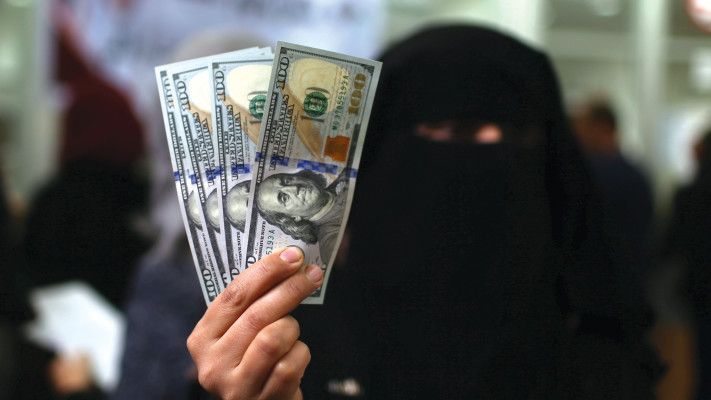
It already appears that this broad front is expected to help Tehran continue to challenge the regional status quo as well as the norms of global law and order, circumvent the severe international sanctions that will soon be imposed on it and, in the process, strengthen it for another potential future round of fighting. Therefore, the public and the leadership in Israel must understand and internalize that this is the "order of the hour" and that we do not have the privilege to behave differently but to unite and avoid factions, to join forces with the USA and all the other partners that support Israel, including European countries, Arab countries and the rest of the world. Everything must be done To cooperate and deal powerfully, decisively and effectively with the existential security threat posed by the Islamic Republic.
